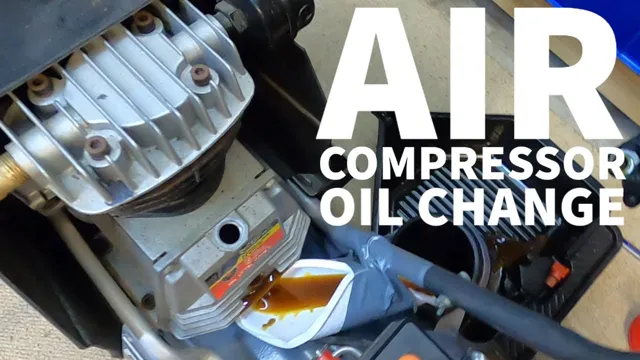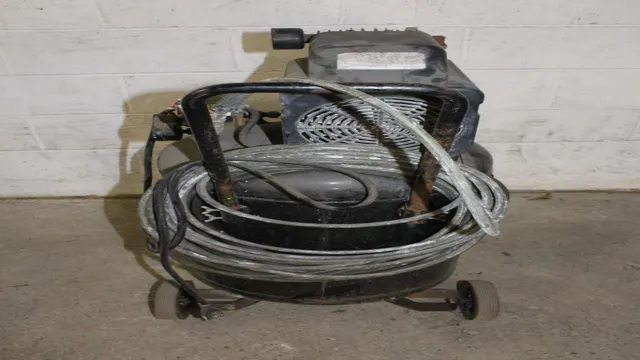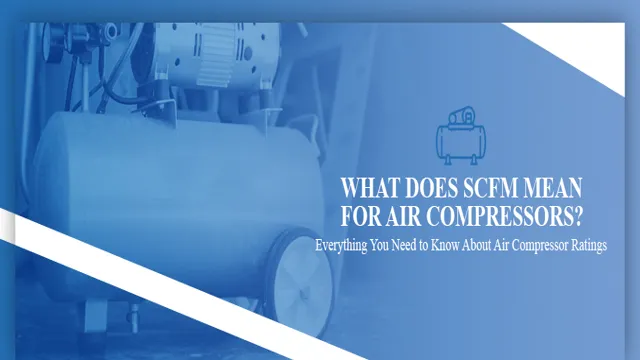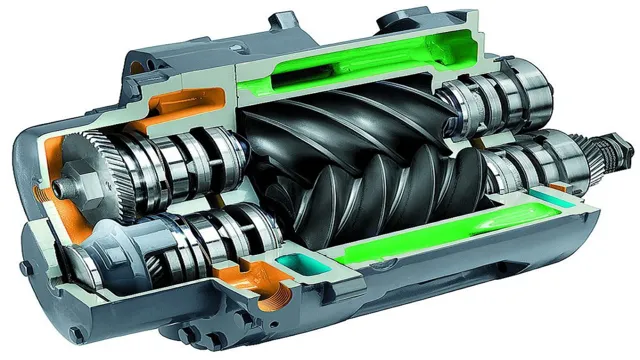What Type Oil for Air Compressor: A Comprehensive Guide to Choosing the Right Oil
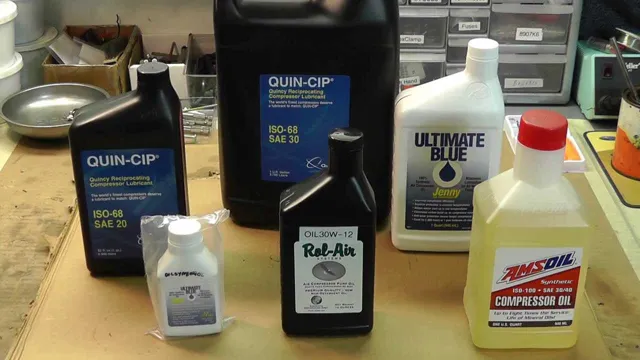
Have you ever wondered why some air compressors last longer than others? It may surprise you to know that the answer lies in something as simple as the type of oil used in your compressor. Using the wrong oil can lead to a host of problems, including reduced performance, increased wear and tear, and even costly repairs. But choosing the right oil for your air compressor can be complicated, with so many options available on the market.
That’s why we’ve put together this guide to help you navigate the world of compressor oils and choose the best one for your needs. Think of it as a roadmap to a longer-lasting, more reliable air compressor – and one that keeps more money in your pocket in the long run. So whether you’re a seasoned DIYer or just getting started with air compressors, read on to learn everything you need to know about choosing the right oil for your machine.
Understanding Compressor Oil
When it comes to choosing the right oil for your air compressor, it’s important to consider the specific needs of your equipment. Different types of compressors require different types of oils, so the first step is to check the manufacturer’s recommendations. In general, compressor oil should have good thermal stability and resistance to oxidation, as well as low foaming tendencies to prevent pump damage.
Mineral compressor oil is a common and affordable choice, but synthetic compressor oil is becoming increasingly popular due to its superior performance and longer lifespan. Ultimately, choosing the right oil for your air compressor can help to ensure optimal functionality and longevity for your equipment, so it’s important to do your research and select an oil that meets your needs.
Viscosity
When it comes to compressor oil, one of the most important factors to consider is viscosity. Viscosity is essentially a measure of how thick or thin the oil is. If the oil is too thick, it can be difficult for it to flow through the compressor, resulting in reduced efficiency.
On the other hand, if the oil is too thin, it may not offer sufficient lubrication to protect the compressor’s moving parts. As such, it’s important to choose an oil with the appropriate viscosity rating for your specific compressor. Generally, compressor oils will have a viscosity rating in the range of ISO 32 to ISO 100, with the specific rating depending on factors such as the compressor’s size, operating temperature, and intended use.
By choosing the right viscosity grade for your compressor oil, you can help ensure optimal performance and protection for your equipment.
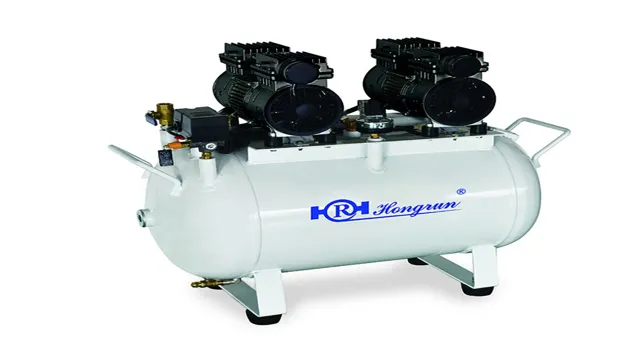
Additives
Compressor oil is specially formulated oil used to lubricate and cool the moving parts of compressors in various industrial settings. It is different from regular oils because it has unique additives such as detergents, antioxidants, and anti-wear agents. These additives help to protect and extend the life of the compressor’s moving parts by preventing excessive wear and tear.
Compressor oil also helps to improve the compressor’s efficiency by reducing friction and preventing overheating, which can lead to breakdowns and costly repairs. It is important to use the right type of compressor oil for specific compressors, as using the wrong type can cause damage or decrease efficiency. Always consult the manufacturer’s manual or a professional when choosing a compressor oil.
Types of Compressor Oil
When it comes to air compressors, it is essential to use the correct type of oil. The most commonly used compressor oil is mineral oil, which is inexpensive and readily available. However, synthetic oils are becoming increasingly popular due to their superior performance and longer life span.
Synthetic oils are also better at handling extreme temperatures and are less likely to break down under heavy loads. Another option is food-grade oil, which is necessary for compressors used in the food industry. It is entirely harmless if it comes into contact with food, ensuring that any compressed air does not contaminate the products.
Finally, there is non-detergent oil, which is typically used in older, low-duty air compressors. It is crucial to choose the correct type of oil for your air compressor to ensure optimal performance and longevity. So, when selecting an oil for your air compressor, it’s essential to determine which type is suitable for your specific application.
Mineral Oil
When it comes to compressor oil, there are different types available in the market, each with its own set of benefits and drawbacks. One such type is mineral oil, which is derived from crude oil. This type of oil is known for its affordability and wide availability, making it a popular choice among compressor users.
Mineral oil is also known for its excellent lubrication properties, which can help reduce wear and tear on compressor components, leading to extended machine life. However, mineral oil can also break down more quickly than other types of compressor oils, which can lead to increased maintenance and replacement costs over time. It is important to carefully consider the specific needs of your compressor when selecting a type of oil, including the operating conditions, temperature range, and required viscosity.
Overall, mineral oil can be a good option for those on a budget or seeking a straightforward solution for their compressor needs.
Synthetic Oil
When it comes to keeping your compressor running smoothly, choosing the right type of compressor oil is essential. One option to consider is synthetic oil. Synthetic compressor oils are made from chemical compounds and are designed to offer superior performance and protection for your compressor.
Synthetic oils are generally more resistant to extreme temperatures and pressure, meaning they can stand up to the demands of even the toughest compressor applications. Plus, synthetic oils tend to last longer than traditional mineral-based oils, which can save you money in the long run. With all of these benefits, it’s no wonder why many compressor owners choose to use synthetic oils in their machines.
So if you’re looking to keep your compressor running at its best, consider switching to a high-quality synthetic oil for optimal performance and protection.
Semi-synthetic Oil
When it comes to types of compressor oil, one popular option is semi-synthetic oil. Semi-synthetic oil is a blend of synthetic and mineral oil, offering the benefits of both. It provides improved resistance to oxidation and thermal degradation, which makes it ideal for high-temperature applications.
This type of oil also offers better protection against wear compared to mineral oil alone. One advantage of semi-synthetic oil is its cost-effectiveness. It’s more affordable than full synthetic oil, but still offers many of the same benefits.
If you’re looking for a compressor oil that provides improved performance and protection without breaking the bank, semi-synthetic oil is definitely worth considering.
Factors to Consider
When selecting the appropriate oil for your air compressor, there are a few important factors to consider. Firstly, the type of compressor you have and its operating temperature will determine the viscosity or thickness of oil required. Reciprocating compressors, for example, require more viscous oil, while rotary screw compressors require less.
Another factor to consider is whether the compressor oil is synthetic or mineral-based. Synthetic oils have a longer lifespan and offer better protection against wear and tear, but can be more expensive. Finally, it’s important to ensure that the oil you select is compatible with any seals or filters in your compressor system to avoid any damage or malfunction.
By taking these factors into account, you can choose the appropriate oil for your air compressor that will ensure it runs smoothly and efficiently.
Air Compressor Type
When it comes to selecting the right air compressor for your needs, there are several factors to consider. The first thing to take into account is the type of air compressor that best fits your needs. There are three main types of air compressors: reciprocating, rotary screw, and centrifugal.
Reciprocating compressors are ideal for home use, while rotary screw compressors are better suited for industrial use due to their higher efficiency and longer lifespan. Centrifugal compressors are used for large-scale applications, such as power plants and chemical plants. Understanding the different types of compressors and their applications can help you make an informed decision when selecting an air compressor for your specific needs.
Additionally, it’s important to consider the performance and features of the air compressor, including its CFM (cubic feet per minute) rating, tank size, and horsepower. By taking all of these factors into consideration, you can find the right air compressor for your needs and ensure optimal performance and efficiency.
Operating Conditions
When it comes to operating conditions, there are several factors to consider. One of the most important is temperature. Electronic devices such as computers, phones, and tablets all generate heat, and if the operating temperature exceeds their maximum recommended limit, it can cause damage to the device.
It’s crucial to ensure that the device is kept at a moderate temperature to ensure optimal performance. Another factor to consider is humidity. High levels of humidity can cause moisture to accumulate on circuit boards, which can lead to corrosion and damage.
Similarly, low humidity levels can cause static electricity, which can also harm electronic devices. Lastly, it’s important to consider the cleanliness of the environment in which the device is being used. Dust and dirt can settle on electronic components, causing overheating and damage.
To ensure the best performance and longevity of your electronic devices, it’s essential to consider all these factors and maintain an ideal operating environment.
Manufacturer’s Recommendations
When it comes to maintaining machinery, following the manufacturer’s recommendations is crucial. However, there are several factors to consider before blindly following these guidelines. First, always take into account the specific environment in which the machinery operates.
For example, if it is exposed to harsh weather conditions or high levels of dust and debris, additional maintenance may be necessary. Second, consider the frequency with which the machinery is used. If it is used more frequently than the manufacturer anticipated, maintenance intervals may need to be adjusted accordingly.
Finally, be sure to monitor the machinery regularly for any signs of wear and tear. Catching and addressing potential issues early on can prevent costly repairs down the road. By taking these factors into account, you can ensure that your machinery operates at its best and lasts as long as possible.
Conclusion
In conclusion, choosing the right oil for your air compressor is like deciding on the perfect seasoning for your favorite dish – it’s essential for optimum performance and can make all the difference in the end result. So, whether you prefer a multi-viscosity blend, a synthetic formula, or a non-detergent option, always consider the specific needs of your compressor and trust in the power of a well-oiled machine. Happy compressing!”
FAQs
What type of oil should be used in an air compressor?
The type of oil that should be used in an air compressor is dependent on the manufacturer’s recommendations. However, most air compressors use synthetic or mineral-based oils with a viscosity range between ISO 32 and 46.
Can I use motor oil in my air compressor?
No, you should not use motor oil in your air compressor as it is not designed for the high temperature and pressure conditions found in an air compressor. Using motor oil may cause damage to the compressor and shorten its lifespan.
Is it necessary to change the oil in my air compressor?
Yes, it is necessary to change the oil in your air compressor regularly. The frequency of oil changes will depend on the compressor’s usage and the type of oil being used. Typically, oil changes should be performed every 500 hours of operation or every six months.
Can I mix different types of oil in my air compressor?
No, you should not mix different types of oil in your air compressor. Mixing different types of oils can cause chemical reactions that may damage the compressor or reduce its performance.
How often should I check the oil level in my air compressor?
You should check the oil level in your air compressor every time you use it. It is recommended to check the oil level before and after each use to ensure that the compressor has sufficient lubrication and to avoid potential damage.
What happens if I overfill or underfill my air compressor with oil?
Overfilling or underfilling your air compressor with oil can cause damage to the compressor or reduce its performance. Overfilling can cause the oil to foam and reduce its lubricating capabilities, while underfilling can cause the compressor to overheat and reduce its efficiency.
How can I dispose of used oil from my air compressor?
Used oil from air compressors should be disposed of in accordance with local regulations. It is recommended to take the used oil to a recycling center or a facility that specializes in hazardous waste disposal. Do not dispose of used oil in the trash or pour it down a drain.

